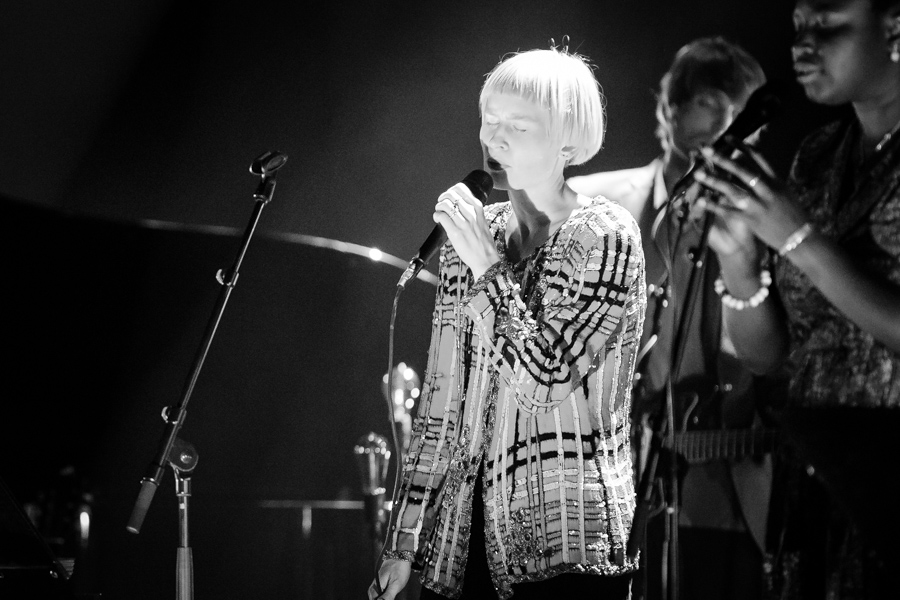Album Review: Jenny Hval – Classic Objects

Matt Titcombe reviews the new Jenny Hval album, Classic Objects.
Jenny Hval has earned a reputation for making disruptive art, with conceptual reckonings about the self and body under capitalism running through her creative output. Whilst far from her most avant-garde release, Classic Objects is an impressive collection of art-pop songs that places her lyrical musings on top of colourful, unfurling instrumentation.
Menneskekollektivet, last year’s release as part of Lost Girls with Havard Volden, was one of 2021’s best albums, marrying the conceptual and the rhythmically hypnotic. When making Classic Objects, Hval told CRACK Magazine that she was interested in “a more straightforward version of myself… to have a confrontation with that, and try to, from that, make work that feels more spiritual”. Where Menneskekollektivet was dominated by synthesisers and drum machines, here she employs distinctly human percussion, and a much warmer arrangements of sounds too.
Hval’s music wanders but never feels lost
‘Year of Love’ opens the album with spiky repetitions of guitar and organ. Its circling progressions give it the feel of a Can jam, infused with a little bossa nova. Hval’s vocals sit clearly centre stage, telling the story of a proposal at one of her live shows. It appears to cause an internal crisis, reflecting on her own marriage and whether “signing a deal with patriarchy” diminishes her own subversiveness as an artist. The chorus is a lovely, dreamy affair that contrasts perfectly with rooted, looping verses.
It is this dynamic of insistent, repeating grooves that slowly unpack themselves, alternating with expansive, soaring release that runs throughout Classic Objects. ‘Cemetery of Splendour’ contains one of the album’s best examples of this sense of release, gaining all its power from the deep, widescreen synth and skittering drums that burst through out of nowhere.
Hval’s words are an integral part of her appeal (she is also a published novelist), and ’American Coffee’, one of the album’s finest moments, boasts a remarkable lyric packed with images that range from the surreal to the graphically, viscerally real. Beginning at her own birth, Hval moves through images of Deleuzo-Guattarian nurses and UTI-induced bleeding on a French cinema bathroom floor.
Hval has a simply beautiful, pristine voice, highlighted all across this album by its prominence in the mix.
The latter may sound a somewhat uncomfortable verse but is beautifully written, with the blood reflecting a hollowed out, purely conceptual version of herself that quit music and the very idea of identity, marrying Hval’s interest in the corporeal and the transcendental all at once. As with ‘Year of Love’, the track has a wonderful groove that grows and progresses and the lyric of the floor tiles wowing and fluttering is joyously reflected in the music. The song swells and swells until coming to a sudden, theatrical call of “QUIT”. You don’t really want it to, but Hval often deals with interruption, disturbance, and changes in perspective.
For all her credentials as a subversive artist, Hval also has a simply beautiful, pristine voice, highlighted all across this album by its prominence in the mix. ‘Jupiter’ showcases this wonderfully, a genuinely catchy dream-pop track that feels destined to be one of Hval’s best, almost reminiscent of Julia Holter in parts. The second verse provides one of the record’s most important images: “I am an abandoned project / But also a creature crisp and clear like the desert / Indistinguishable from clarity”, with Hval conceiving of herself as a vast, deconstructed space of endless potential.
Even in moments of apparent straightforwardness though, Hval thwarts convention, and when the main body of the track ends, a sustained synth bass pedal note is held for 4 minutes. It slowly begins to get louder and distort, with unintelligible whispers and cries buried in the background, making you feel as if going slightly mad. It’s like she is trying to swallow the memory of the lovely track that has just passed, as if we have reached “the ether” Hval was calling on in the chorus.
Hval seems to put herself on the anatomy table
The album finishes strongly with ‘The Revolution Will Not Be Owned’. It begins with a rhythmless splattering of piano and cymbals, sounding like a band warming up for the finale, and its instrumental has a distinctly jazzy feel. Lyrically, it feels like a philosophical manifesto, glorifying the space of the ‘dream’ as the place where all baggage and self-awareness is set aside. In a moment of meta-commentary, Hval informs us that “this song is regulated by copyright”, and that revolutions cannot be, and will not be, owned.
Hval’s music wanders but never feels lost, giving her frank and compelling emotional cartography a perfect bed to sit on. Even if the instrumentals sometimes feel too slight in the mix, they play their part very well. Classic Objects is a release where Hval seems to put herself on the anatomy table: a reckoning with her own sense of individuality in a society that seems to resist it – and she sounds wonderful whilst doing it.


